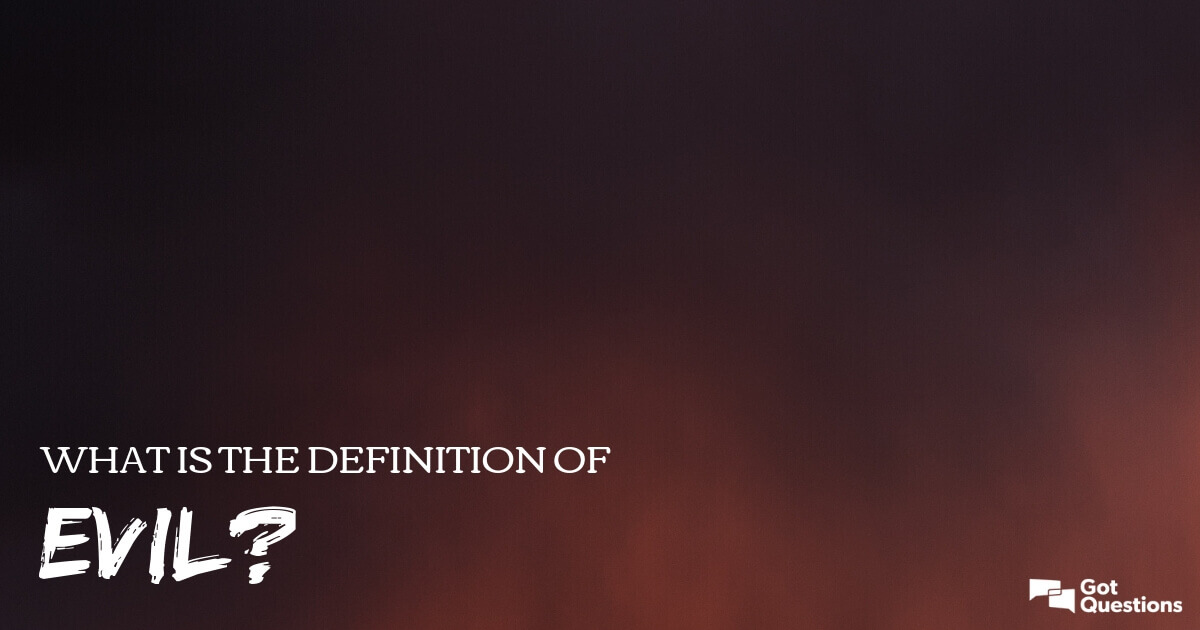The concept of evil has fascinated philosophers and theologians throughout the ages, representing one of the most profound challenges to humanity’s understanding of existence. Among the myriad perspectives on this complex subject lies a unique interpretation rooted in the teachings of the Bahá’í Faith. This perspective not only elucidates the nature of evil but also propounds a transformative philosophy that encourages personal and collective growth. To traverse the intricacies of this discourse, we shall explore the Bahá’í definition of evil through a thorough examination of its origins, manifestations, and ultimate purpose, juxtaposed against the backdrop of an evolving moral landscape.
The Bahá’í Faith posits that evil is not an intrinsic quality of the world, nor is it a cosmic force countering the divine. Rather, evil is viewed as a privation, a shadowy absence of good reminiscent of darkness which exists only in the absence of light. This nuanced understanding allows for a holistic appreciation of evil as a construct resulting from human actions, decisions, and the prevailing circumstances surrounding them. Just as darkness cannot exist where light prevails, evil cannot persist in the presence of genuine goodness.
In exploring the genesis of evil, Bahá’í teachings assert that it arises through a multitude of channels: ignorance, materialism, and the neglect of spiritual realities. The Bahá’í Faith encourages its adherents to cultivate knowledge and understanding, reinforcing that ignorance breeds fear and thus engenders destructive behaviors. Herein lies a vital invitation to pursue education—not just in the academic realm but in the spiritual and moral dimensions as well. This intellectual enlightenment serves as a safeguard against the whims of evil, empowering individuals to navigate the complexities of their own lives with discernment and clarity.
Moreover, materialism, a relentless pursuit of fleeting pleasures, casts a profound shadow on the human spirit. When individuals prioritize material pursuits over spiritual elevation, they become ensnared in a web of dissatisfaction and vice. The Bahá’í teachings advocate for a balance between material well-being and spiritual enrichment, recognizing that true fulfillment manifests when both dimensions align harmoniously. In essence, allowing material pursuits to eclipse the spiritual may lead to an inexorable descent into moral ambiguity—the very breeding ground for paradoxical manifestations of evil.
Within this framework, the **manifestation of evil** is articulated through interpersonal relationships and societal structures, revealing itself in myriad forms such as oppression, injustice, and inequality. The Bahá’í Faith encompasses a profound commitment to justice, emphasizing that the eradication of systemic injustices is tantamount to vanquishing evil from the collective consciousness. One might liken this effort to the cultivation of a garden; without care, invasive weeds flourish, suffocating the beauty and vitality of the blossoms. Hence, active participation in social justice becomes an imperative endeavor, not merely a moral option, for those aspiring toward a better world.
Central to the Bahá’í ethos is the notion that the potency of evil diminishes in direct proportion to the degree of unity and fellowship cultivated among humanity. This unity transcends geographic, racial, and cultural barriers, creating an inclusive tapestry of human experience. Bahá’ís are encouraged to foster relationships predicated upon love, respect, and mutual appreciation—endeavors that collectively serve to denounce the fabrications of hatred and discord. The Bahá’í Faith, thus, often metaphorically describes the challenges of evil as a tempestuous sea threatening to upend the fragile vessel of society. In this analogy, unity acts as the lighthouse, guiding lost ships toward safe harbor amidst turbulent waters.
Recognizing the prison of evil provides an opportunity to shift perspective from that of despair to empowerment. The Bahá’í teachings assert that the very existence of evil presents an opportunity for spiritual development and moral fortitude. Pain and suffering, while undesirable, can serve as catalysts for personal growth, invoking the potential for transformation and healing within individuals and communities. This perspective encourages the perception of challenges not merely as adversaries but as teachers, inviting a dialectic process wherein one learns resilience, patience, and ultimately, compassion.
In conclusion, the Bahá’í understanding of evil weaves together a rich tapestry of philosophical discourse, moral imperative, and community engagement. Evil is perceived not as an immutable scapegoat but as a temporary affliction, a result of human choice and societal structures demanding reformation. By cultivating knowledge, actively pursuing justice, and nurturing unity, individuals and communities alike are challenged to confront the shadowy manifestations of evil head-on. Bahá’í teachings invite us to illuminate the path forward—a journey into the light where shadows cannot endure, fostering an era of peace, understanding, and genuine fulfillment.
